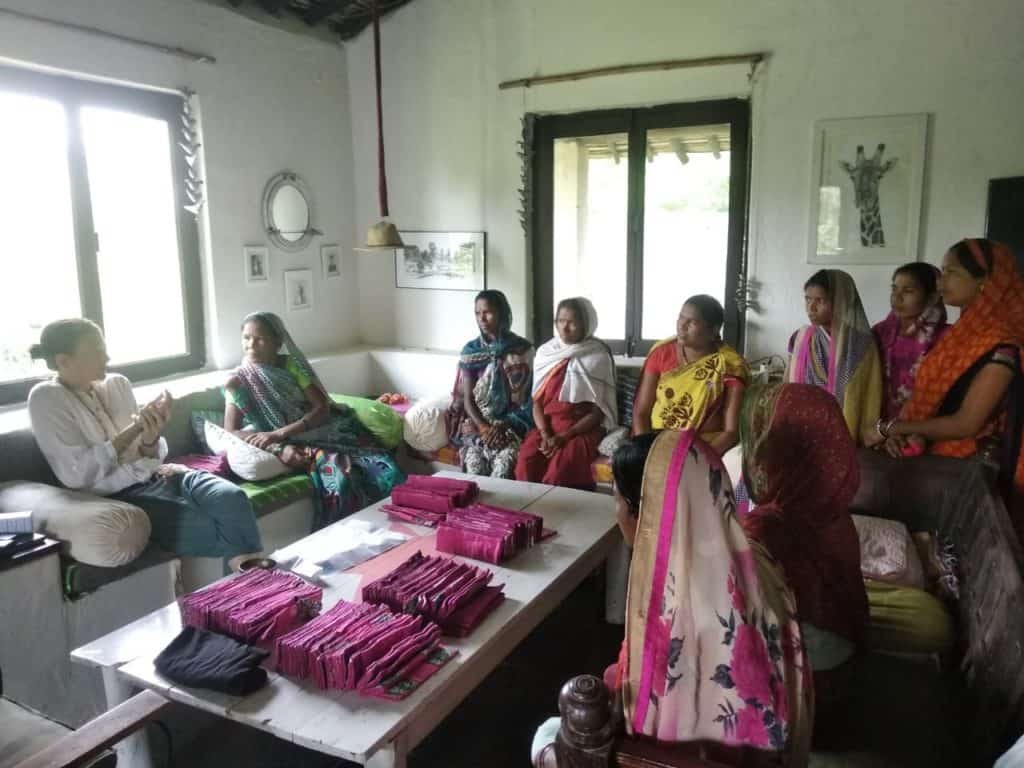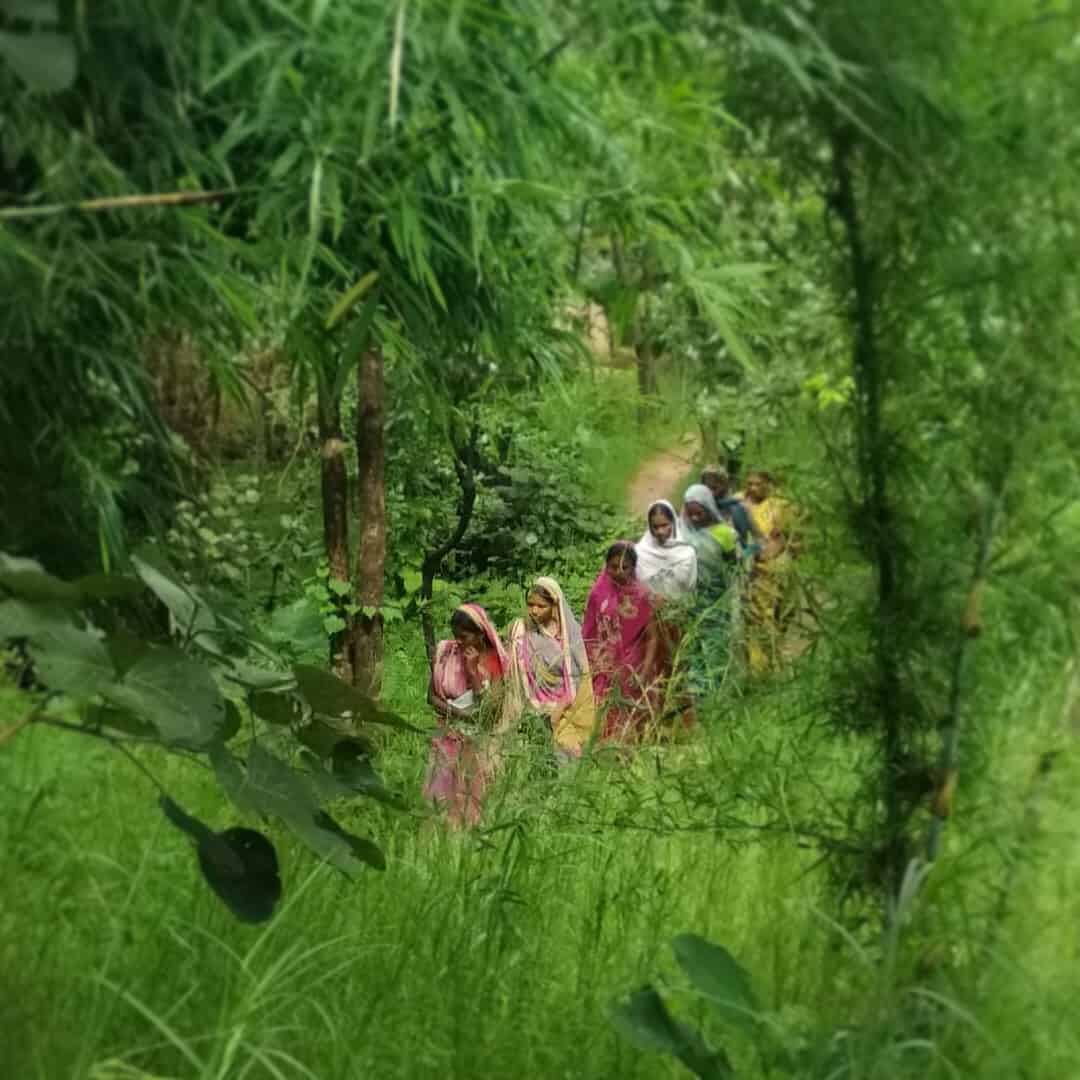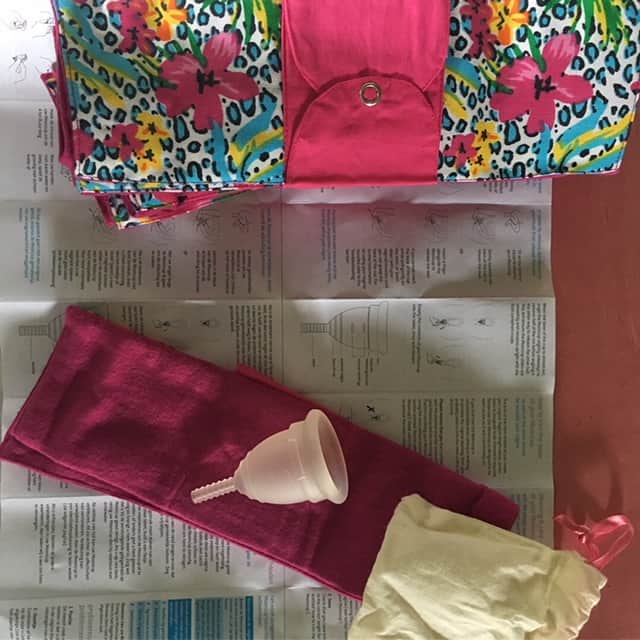On a recent research trip to India, ETG was lucky enough to meet with Isa Heini. After working as a nurse for 13 years in her native Switzerland, Isa visited India and fell in love with the country – so much so that she and her husband ended up staying and building Flame of the Forest Lodge. While building the lodge, she got to know the women of the region and felt inspired to found Hathi: a social enterprise that promotes education and employment of women living in rural Madhya Pradesh in to try and help tackle period poverty in rural India.
Isa is now the Creative Head of HATHI, and lives in Kanha National Park where their projects are carried out. Here, in her own words, Isa gives us an insight into Hathi’s admirable work.
“To begin with, I would like to address something which troubles my heart whenever I speak about my work.
India does not have a pretty face in the international media when it comes to women and how they are treated. But this is not the only face India has. India also has a strong beating heart for women and, in my many years of living in and travelling through India, I have seen and experienced both faces with their many facets: good and bad, beautiful and ugly, empowering and enslaving, compassionate and cruel.
But when it comes to “my” ladies here in Kanha, I can tell you one thing with certainty: these women are strong! If they are convinced about something they stand up for it and you would not want to stand in their way. I would not want them to be seen as weak, repressed women who needed my help. That is far from the truth.
When I first started working with them, all they needed was first, a good and affordable product, and second, a catalyst who would kick start the engine.
We believe every person has the ability to learn, be creative, contribute to society and earn their own money. So we formed a social enterprise named Hathi in order to give these principles a proper framework among the rural communities of Madhya Pradesh. Our core commitments were to:
- Provide training. If you have a skill you are empowered to earn your money and BE INDEPENDENT, hence you have a sense of freedom and self-esteem. If we believe in who we are, then we are a step closer to believe in our basic right to get treated well, to have the freedom of choice, speech and thought.
- Improve knowledge, imagination and creativity in developing the product. This makes us humans look at things from all angles and hence increases skills, learning capacity and joy.
- Contribute to society. Part of the money we earn is used in the workshops for Health and Hygiene during menstrual cycle. The local women help during these workshops and hence they are directly contributing with their efforts to the community.
- Provide an income. All the thirteen women working with us earn a monthly salary, some of them have become the highest earning members of the families and hence, they have developed a sense of self esteem and confidence.

- Burn them. For this option she would need extra fire wood coming from the forest which we try to protect. She would need extra time to get the fire wood, which she does not have as chores of every day lives are intense. Even if she manages all of this, when she finally sits by the fire to burn her used pads within the boundaries of the village, she is likely to be “disturbed” by a neighbouring visitor, who can be male or female. Understandably, this is too much stress so no one tends to opt for the burning solution.
-
Bury the used pads. Life of rural India circles around farming. Hence to spoil the earth while burying waste below the earth is thankfully not an option to start with
-
Throw it into the forest. This option is sadly used the most which leads to a human-wildlife conflict bigger then what we want it to be.
After a long research, we found a product which is cotton-based pad manufactured by Eco-Femme in Auroville. The pads are beautifully designed and appealing to the ladies. They are washable, hence reusable over a period of seven to eight months till the cloth finally needs to be replaced. Most importantly, it is a safe and practical tool, approved by many women.
When we started the workshops, I went from village to village conducting the workshops myself and it was far from easy. Why would and why should they trust me? I was a stranger to their way of life, so today, I am thankful and respect them a lot for opening up and trusting me against all odds.
At present, we have ten local ladies conducting the workshops in about twenty villages all around the Kanha National Park. We are expanding organically and also introducing the menstrual cup in small baby steps. This work is a blessing for me, being a Swiss woman living in central India. So many stories, so many insights into the simple, beautiful and heartfelt life of indigenous people. So many strong and stunning women have crossed my way and provided me with learning and love I could have never ever imagined.”
To find out more about Isa and her admirable work, visit the HATHI website. If you would like to find out more about Kanha National Park as a wildlife destination, why not read this blog about a special encounter at the park? For more information on India as a holiday destination, please click here.



